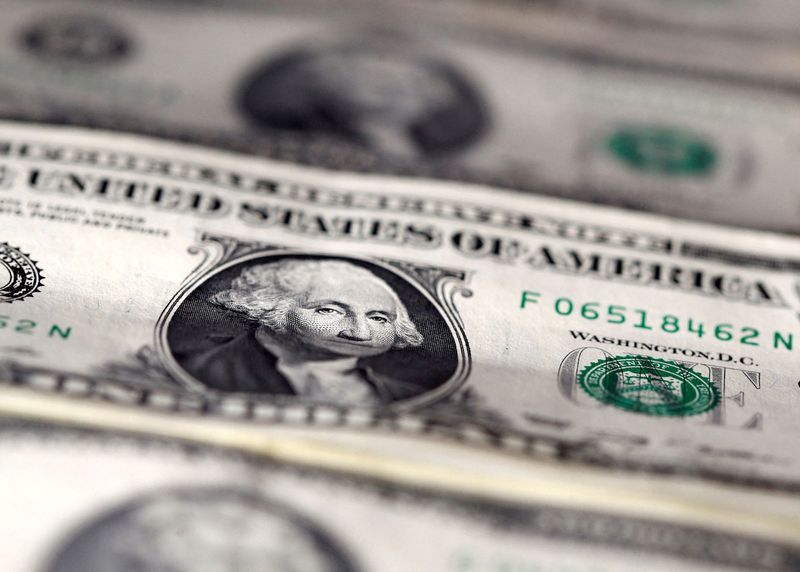2/2

© Reuters. FILE PHOTO: U.S. dollar notes are seen in this November 7, 2016 picture illustration. REUTERS/Dado Ruvic/Illustration/File Photo
2/2
LONDON (Reuters) – The euro and the yen rose on Thursday, reversing some recent losses against the U.S. dollar, while the Swiss franc hit a one-month high against the euro after Swiss inflation soared to its highest in 14-years.
In Asian trade, the dollar had risen to a three-week high versus the Japanese yen after an overnight advance in Treasury yields. But by the European open momentum in the U.S. currency had fizzled. Trading on Thursday is quieter with London markets shut for a UK holiday.
By 0745 GMT, the dollar was down 0.3% against a basket of rivals, while the euro climbed 0.4% to $1.0689, following two days of losses. The yen reversed its early weakness and was last at 129.87 yen per dollar, up slightly on the day.
Data this week, stronger than expected in the United States, has reaffirmed the U.S. economy is likely to hold up better than rivals even as the global economy slows.
“Robust U.S. data and an ensuing extinguishing of hopes that the Fed would need to ease hiking expectations were behind the U.S. Dollar rally,” said Jeffrey Halley, an analyst at OANDA, describing this week’s European economic data by contrast as “soggy”.
But a record euro zone inflation reading this week adds to pressure on the European Central Bank, which meets next week for its policy meeting, to act to tame price growth even if that means weakening a slowing economy.
The Swiss franc gained 0.3% to 1.022 francs per euro, a one-month high, after Swiss prices increased by their highest level in 14 years during May.
The 2.9% reading may look modest versus the 8%-plus readings in the euro zone and Britain, but it stands out for a country known for its historically low inflation and will further pressure the Swiss National Bank (SNB) to address rising prices.
The franc had broken parity with the euro in March as traders bet the ultra-dovish SNB would be forced to tighten policy and less inclined to fight a strengthening franc.
Against the dollar the franc gained 0.5% to 0.9576, a two-day high.
ANOTHER RATE HIKE
The Canadian dollar was little changed on Thursday at C$1.2657 after the Bank of Canada on Wednesday, as expected, hiked rates by 50 basis points and signalled more aggressive tightening to come.
Despite Thursday’s fall, many analysts still see the U.S. dollar outperforming, if economic data supports a further rebound in U.S. Treasury yields.
The U.S. currency’s rally overnight was led by the U.S. 10-year yield hitting a two-week high of 2.951% on Wednesday, after data showed U.S. manufacturing activity had picked up in May as demand for goods remained strong.
“It’s almost a mirror image of what we saw last week, when there was talk of a possible pause in the tightening cycle,” said Ray Attrill, head of foreign exchange strategy at National Australia Bank (OTC:NABZY).
Traders are now looking to more U.S. employment data due later Thursday and to Friday’s U.S. payroll numbers.
Source: Investing.com




























